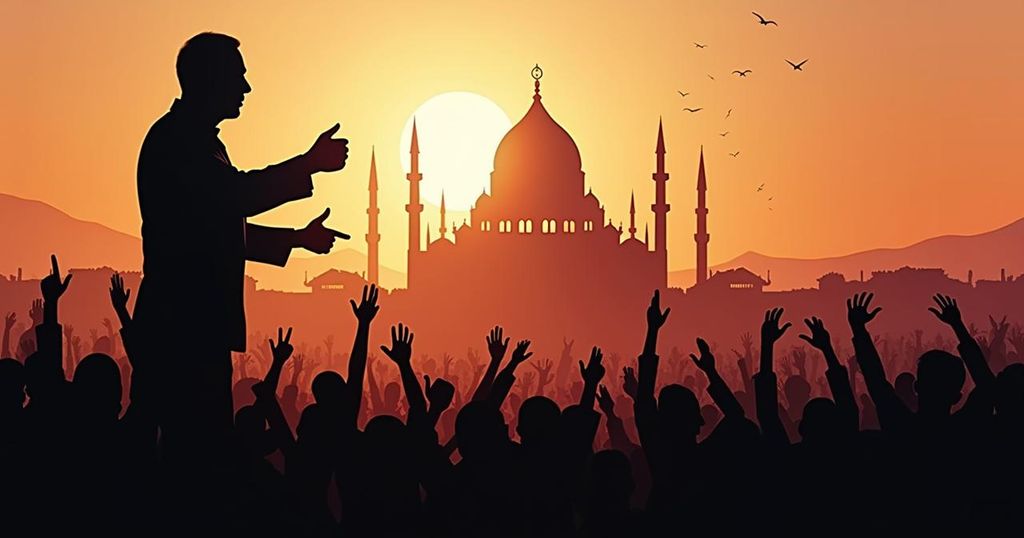Kais Saied’s Uncontested Re-election Bid: A Reflection of Tunisia’s Democratic Decline
President Kais Saied of Tunisia is seeking re-election in an environment deemed undemocratic, with significant political curbs and the imprisonment of a candidate just days before the election. The absence of viable opposition candidates and civil discontent reflect a worrying trend of autocracy since Saied’s rise to power in 2019, marking a regression in democratic progress in the country.
Tunisia’s President Kais Saied is poised to seek re-election in a contest many view as a foregone conclusion. With significant political apprehension and a contentious history since his initial election in 2019, Saied stands virtually unopposed given the political climate. Despite over a dozen politicians expressing intentions to run against him, only two candidates were allowed on the ballot—one of whom, Ayachi Zammel, was recently imprisoned on charges of document falsification. The political landscape in Tunisia, the birthplace of the Arab Spring, has become increasingly concentrated under Saied’s control. Following his rise to power, the president suspended parliamentary functions and reformed the constitution, thereby amassing significant authority. This marks Tunisia’s third presidential election post the overthrow of Zine al-Abidine Ben Ali in 2011, an event that initially symbolized hope for democratic governance in the region. Prominent voices, including Sarah Yerkes of the Carnegie Endowment for International Peace, have noted that President Saied has engineered the political environment to ensure a lack of viable alternatives, rendering the election a de facto referendum on his leadership. Campaign activities have been notably absent, with the streets predominantly displaying his campaign materials. The largest opposition party, Ennahda, has reported unprecedented levels of arrests among its members. Human Rights Watch highlighted that several potential candidates have been sidelined through legal action, creating a misleading facade of choice in the election. Despite facing severe charges, Zammel’s name will still appear on the ballot, although he has publicly denied any wrongdoing. The other candidate, Zouhair Maghzaoui, has oscillated between supporting and critiquing Saied’s governance. Rights organizations have expressed serious concerns over the diminishing political freedoms under Saied’s rule. Since his 2019 election, Tunisia has slipped considerably in democracy rankings. Although he began his term with promises of economic rejuvenation and anti-corruption measures, the results have been lackluster, with unemployment now at 16%.
The political crisis in Tunisia has roots in the Arab Spring of 2010, a movement that aimed to put an end to autocratic regimes across the region. Tunisia initially succeeded in establishing a more democratic system after the ousting of long-term leader Zine al-Abidine Ben Ali. However, following Kais Saied’s election in 2019, optimism waned as he began consolidating power, ultimately suspending parliament in 2021. His subsequent legal maneuvers and constitutional revisions have effectively dismantled the democratic framework that had been established, leading to a climate of fear and repression against dissenting politicians and activists. The current election scenario reflects this troubling trajectory, with significant implications for Tunisia’s democracy and governance.
In conclusion, the upcoming presidential election in Tunisia highlights the authoritarian grip of President Kais Saied, who has manipulated the political landscape to eliminate opposition and dissent. With significant concern regarding human rights abuses and political freedoms, the election serves as a crucial indicator of Tunisia’s democratic health. It appears set to reaffirm Saied’s presidency, amid public disillusionment and protests against his regime.
Original Source: www.bbc.com




Post Comment